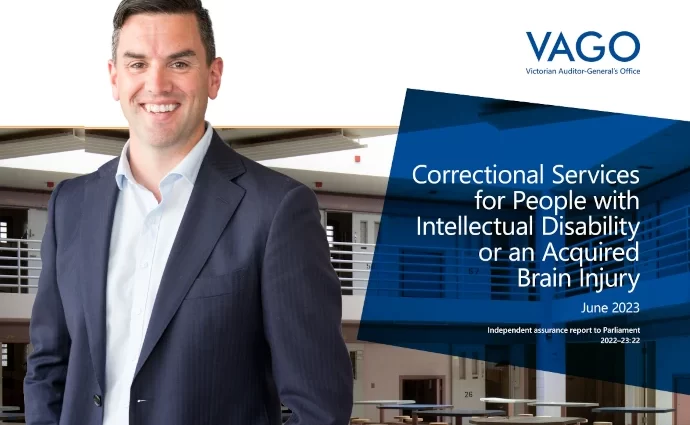Victoria’s broken justice system has again been laid bare after the Auditor-General revealed damming findings against the Andrews Government’s treatment of one of our most vulnerable prisoners.
The Victorian Auditor-General’s Office’s independent assurance report – Correctional Services for People with Intellectual Disability or an Acquired Brain Injury – found the corrections system in Victoria fails to adequately meet the specific needs of these prisoners.
Some prisoners continue to be denied services that could reduce their risk of re-offending.
VAGO concluded that the Department of Justice and Community Safety does not adequately govern its services for prisoners with an intellectual disability or acquired brain injury.
It also found:
- Prisons do not deliver services consistently
- Services are under-resourced
- Prisoners with intellectual disability or an acquired brain injury do not have an equal chance of accessing support.
- Compliance is not monitored.
Shadow Minister for Corrections, Brad Battin, said such appalling oversight and treatment of such a vulnerable prisoners cohort cannot continue.
Also read: Renee Heath increased the Liberal Vote in Eastern Victoria by more than 10,000
“The Andrews Government should be ashamed of the Auditor-General’s findings in this report,” Mr Battin said.
“To manage these prisoners so haphazardly and poorly – in a situation where their circumstances demand specialist, detailed care – is just appalling.
“For the department to tell the Auditor-General that it ‘might’ develop ways of assessing if the programs are reducing reoffending just typifies the lack of accountability this Government is known for.”
Shadow Minister for Disability and Aged Care, Tim Bull, said the balance of support had to completely change.
“Those with an intellectual disability or acquired brain injury are getting less support when they should be getting more,” Mr Bull said.
“In many cases a person’s disability has contributed to the situation they find themselves in.
“Not only do they need special treatment, they also need tailored support from someone who has a deep understanding of the plight these prisoners find themselves in.”
Similar Posts by The Author:
- Distinguished Professor Brajesh Singh wins Arrell Global Food Innovation Award
- Sydney Train Station tragedy: Anand Runwal died but could only save one daughter
- Construction of New Melton Hospital to start this year
- Queensland Millaa Millaa falls victims were Indian students Chaitanya Mupparaju and Surya Teja Bobba
- Art of Hair Bateau Bay operators Nelvin Lal and Cheri Rance face court for third time

